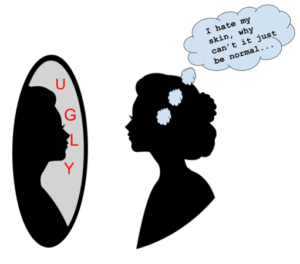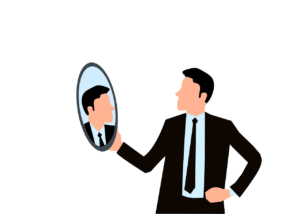
On April 24, 1990, my father was killed in a Pennsylvania hospital. He was in the third day of recovery from elective reconstructive knee surgery when an error his doctors had made erupted somewhere in his abdomen. Most of his blood vessels ruptured and he bled to death. His doctors had prescribed too large a dose of coumadin, an anticoagulant used to prevent blood clots.
A few weeks after his death, I flew to Pennsylvania to meet with the two surgeons at the hospital. My family and I needed to know what had happened. Too many unanswered questions lingered. One of my brothers wanted to hire a lawyer and turn him loose but had agreed to wait until he knew the results of my meeting.
At noon, I stood before the hospital, a solid collection of brick and concrete and glass rectangles–a massive promise of competence and power. I felt small and nervous. I tried to imagine my father, who hated hospitals and was a grumpy and ill-tempered patient, as they rushed him back again to the operating room. I had been told that one of the doctors walked at his side and held my father’s hand, and I wondered if Dad had been frightened.
I imagined the surgeons opening his abdomen and standing transfixed and impotent before the hopelessness of all that damage. My mother had called me from the hospital to say that they’d sewn my father up and wheeled him to a room where he lay unconscious and dying. There had been too much bleeding to stop it.
As I stood looking at this imposing building awash in the noon sun, I couldn’t shake the image of Dad’s small body lying alone in the dark somewhere inside. How could they open him, recognize the problem and not fix it? This was a hospital, and he had been here, not dangling from the end of a 911 call somewhere in the wilderness. It was as absurd as a fire station burning down.
I reached inside my jacket and touched the folded list of questions I wanted to ask, reminding myself that this hospital was now going to answer to me. I felt no reassurance. The hospital looked just as huge, and I felt no bigger.
My memory of the two hours I spent with the doctors is a jumbled collection of impressions wrapped in sadness and a surreal haze. The doctors seemed young, in their late ’30s. They were energetic, sincere and intelligent. I was struck by their promptness and the apparent open-endedness of our meeting. I guess we all sensed the distant thunder of litigation.
They led me to a comfortable room–wood paneling, polished wood table, padded chairs–where we were served lunch. My father had once told me a story about having lunch with a doctor friend in a similar room. When they entered, a few doctors were eating around the table and discussing a model of an amputated leg that stood amid the napkins and plates. While the two doctors answered my questions, I felt my father’s ghost settle over our conversation. I wondered if I was moving any closer to the truth that fluttered elusively through the shadows of their explanations.
As they spoke, I understood the reason Dad had chosen and trusted them to repair his knees. He’d always insisted on finding the best people for any job–the best lawyers, teachers, mechanics, doctors. His vast network of professional friends had led him to these surgeons. And they were clearly good. They guided me carefully through the details of my father’s last few days–the blood clot that appeared in a lung, the difficulty of determining quickly the level of coumadin in the blood, the unanticipated changes in my father’s chemistry since an earlier knee operation.
When they described the sudden jump in his coumadin count and their scramble to reduce it, I noticed one doctor swallow. It was a moment in the Emerald City. The tremor of his Adam’s apple shook the curtain aside to reveal the small, frantic man behind the image of the wizard. I was in a fancy room in a big building, but these were not gods or magicians. They were men–imperfect and fallible–frightened to appear so in a society that expects perfection and infallibility from its professionals, especially its doctors.
These men were just like the rest of us. They’d spent years working hard to become competent in a field they care deeply about, a field that despite two or three thousand years of development is still a mixture of marvels and mystery. They hadn’t been negligent or incompetent. They’d used the complex and dangerous tools of their craft as carefully as they could, guided by knowledge and understanding based on previous use of the same tools. They had improvised as intelligently as they could when the results failed to conform to previous experience. They’d made mistakes that they could see only in hindsight, the perspective from which society makes its judgments. In hindsight everything is obvious.
In this era of lawsuits and other lotteries, I am sure I could have become a millionaire by suing my father’s doctors and the hospital–assuming my lawyer would have shared the award with me. But I didn’t. I think I understand the reason. It wasn’t that I wasn’t angry with the doctors, that I didn’t want revenge or someone to pay for my pain. I’m not so gullible that I can’t recognize the crooks and quacks that move among us. It was simply my realization that we expect too much from each other. We refuse to accept that we make mistakes, that even the best of us screw up.
Don’t misunderstand me. I know that forgetting the lettuce in a Big Mac doesn’t compare to making an error that costs a life. The stakes are higher in an operating room. Nor am I opposed to lawsuits that seek to punish those who hack off the wrong leg or knowingly sell products laced with danger. But to sue someone for failing to be the god we wanted strikes me as wrong.
Why is it that we know so little ourselves yet expect so much from others? We refuse to recognize the flimsy curtain that separates the intention from the result, the image from reality. Andre Agassi and the Wizard of Oz may believe that “image is everything,” but most of us ought to know that we’re just folks from Kansas flying by the seat of our pants and doing the best we can.”
Alden Blodget has been a high school teacher and administrator for over 50 years. He has published several articles about education and a book of collected talks he gave to high school students (Dead Man Talking). This article was originally published in Newsweek (1996) and is posted here with permission from Alden Blodget.
Like most of the pictures on TeensParentsTeachers, the picture posted with this article is courtesy of a free download from Pixabay.com.



